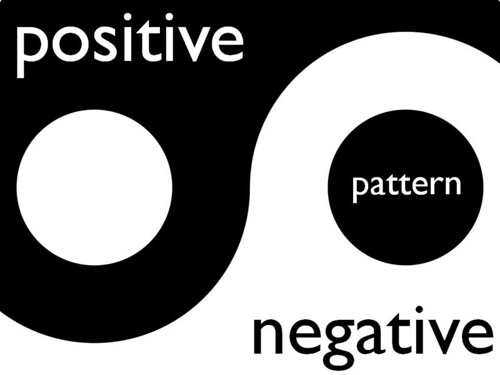 This past week, I saw a post from my friend Scott Monty (Social Media fella at Ford Motor) about the seeming incivility of the social web, and calling for people to be more positive.
This past week, I saw a post from my friend Scott Monty (Social Media fella at Ford Motor) about the seeming incivility of the social web, and calling for people to be more positive.
Great.
He also referenced a post by Frank Eliason, (social media honcho at Citibank) more specifically calling for a #positivelysocial day on August 14.
I like the idea of thinking more about what you say online, though frankly we each have our own style. But I am more interested in fostering constructive dialogue- including criticism, rather than forcing positivity on people. The problem with having your heart in the right place is everyone knows where to step on it.
But rather than just putting vinegar in Frank and Scott’s Cheerios (see? I made that tired cliché much more “nice” by cleaning it up a little – maybe it works!), and more to the point of my call for constructive dialogue, I’ll lay out why I absolutely hate the idea of a #positivelysocial day and what, perhaps, we can do instead.
How about being positive on any day?
This is my main objection – personally I don’t like being told what to do. I’m nice when I find things to be nice about. Saying we need to be nice on a certain day means we miss opportunities to be critical when we must. In fact, my first rule of criticism within our industry is that it makes us better. I don’t think we need to watch idly as some professionals trample our best practices, just because today is “Be Nice to $%@^’s” Day.
Pro Tip: if your employer or client is absolutely determined to do something awful or stupid on the social web, have them do it August 14. If it’s #positivelysocial day maybe they won’t get hammered with “#FAIL” hashtags as badly
Much negativity on the net is incurable

We call them Trolls for a reason: they are ugly monsters, and we do best to simply avoid them. They will not change their behavior and they will certainly not be magically convinced to be nice because we asked them to. I must admit, the “giving the Winter Warlock a Choo-Choo” bit seems tempting, but the Winter Warlock never got a YouTube account before that goody two-shoes Kringle got to him.
The existence of trolls relegates #positivelysocial, awareness aside, to an ineffectual stunt.
Another thing: the examples Frank gives in his post are not relevant to how I see this issue. One example is the young lady who wrote the ill-advised article stating that only people under 25 should be hired as community managers, only to run away and hide rather than, well, engage the community. In my opinion she deserved much of the criticism she got and she had ample opportunities, all ignored, to create a constructive discussion. The other, the poor girl who muffed the National Anthem (a difficult song to sing- sheesh), was trolled on YouTube, one of the notorious cesspools of the Internet. Want to weed out negative comments on YouTube? Lock the trolls in and (figuratively) burn the whole thing down.
Well, that’s not happening.
Criticism isn’t just negativity, it’s important
I’ll agree that the more civil we are when we disagree, the better. I’ll also agree that it’s easier to criticize than point out the good. But setting aside one day to be positive just does not compute with me.
So I, for one, will ignore #positivelysocial as a holiday. I might rebel by saying positive things on August 13- I might even say “unsanctioned” nice things on the 14th. But if we don’t make our goal education and the improvement of our industry and those who practice within it, it’s just a stunt.
“Nasty” vs “Respectful”
This is really just a repetition of the trolls vs the honest critics point above, but it’s worth making and worth saying again. I will concede that some of us in the social media marketing industry get nasty. I will also concede that there are some good instructional points in Frank Eliason’s follow-up post on how to be nice. There is an art to being critical (or, if you must say it, “negative”), and I have my own tips here:
- Be constructive: Don’t just hate, say what you might do differently. Also point out what you do like about the thing you don’t like, but don’t go so far as to make stuff up because you’re trying to be nice. Hey, I tried to do that here; how successful I’m being you will have to judge.
- Use humor: But only if you’re good at it. Nothing is worse than a badly-timed (and yes, text has timing) joke.
- Continue the dialogue: don’t just hate and get out. If the person you are talking to – or others – join in a discussion, stay at it. As with humor, you need judgment, in this case to know when it’s just becoming a flame war.
- Don’t pile on: Criticism has a point – attacking an idea (and proposing a better one) is often cool, attacking a person because they “don’t get it” gets tiresome. If the person truly doesn’t get it (whatever that means) move on.
- If you are criticized, don’t be thin-skinned: Make it constructive instead of just calling people haters. Defensiveness smells of weakness. Trolls call it “breakfast.”
My parting words: Don’t conflate “be nice” with “don’t criticize.” That’s my biggest fear regarding this whole stunt. If I can’t honestly question what you are doing, whether out of curiosity, criticism or some other reason, then what are you doing on the social web? In the community of social media PR and marketing professionals, critical discussion is our most valuable currency. Don’t devalue that. It’s better to know how to be critical than not to be critical at all.
Feel free to skewer this thinking (and me) in the comments). Or say something nice, even if it’s not August 14.
image credit: bluekdesign on Flickr

Doug, Thanks for putting words to my feelings. Well said.
I subscribed via RSS. Keep it up.
Amen. Without reading Scott and Frank’s posts, I could see where they are coming from. Too many people use the web to vent and tear other people down without ever being positive, or even constructive.
But I’m still with you. There are too many shady characters just within this industry. While it should still be done tactfully, everyone benefits by calling them out on their shady-ness.
Be positive where positivity is due. But sometimes honesty is much more powerful and leaves things in a much better place.
Maybe it should be #HonestlySocial.
It’s not even shady characters- it’s you and me (but mostly you). I like civil disagreement. I think Frank is going after the more hateful trolling, but I still don’t see how a “day” is going to change that
Doug,
Thank you for taking the time to chat via twitter today. I love the opportunity to have dialogue especially if there are differences of opinion. As you have read in my various posts, trolls are not the primary issue I am trying to address a larger issue regarding the manner we handle differences. Often times we are on the attack instead of a respectful dialogue. As I point out in my post on Social Media Today, I think social media is simply highlighting a broader issue. We have to find a way to lead society back into allowing dialogue on topics without it turning into personal attacks. In the past certain leaders have brought us together but in a social world we have the ability to lead the way. Here is a link to my Social Media Today post.
http://socialmediatoday.com/frankeliason/670841/dear-world
Have a great day!
Frank
Frank,
First, thanks for the SMToday link. I went right to your blog and completely forgot the original.
I agree that personal attacks are not needed, and negativity is often unnecessarily vicious.
To boil down my objection: I worry that people will interpret this as a call to be “only positive.” Though I am sure you do not mean that, people have a way of interpreting broad ideas into extreme- and that can be just as harmful as the trolling.
…you ignorant slut ;P
I’m like you Doug, I don’t really like being ‘told’ to do something. However, I don’t necessarily equate positive to always agreeing and I think it’s a good reminder to be constructive in our comments to the majority of us who are not trolls. At some level, marketing IS gimicky because it gets us to pay attention to something. And we all get cranky in a way that’s not always the most effective means of getting the outcome we want. So for me, I need reminders.
Maybe #ConstructivelySocial?
Rachel- sorry for replying so late, but you are on to something there. I value constructive dialogue, not cynical fake-positive “sincerity.”
I think that’s my true objection to this. The further examples I have seen as to why we “need” this day are simply further cases of mean-spirited trolling. I don’t get the impression most people think this is ok on any day. So why pick a day to hate it? Hate it every day, and know you can’t “pray away” the trolling, to crib from a hateful phrase from another corner of indelicate discussion.
If this thing makes people more positive, great. I still think it’s cynical. Not insincere, as my Twitter conversation with Frank proved- but cynical.
[…] spend a day reflecting on what we post and how we interact online, we can also sympathize with the alternative perspective offered by Doug Haslam in that it’s important to disagree too and that we should make an effort to be positive and […]
I liked the idea, but decided not to support it for similar reasons. We need conversations about ideas, not cream puff unicorns. :)
That being said too many times I see people take the “Attack the idea” approach and act like assholes online. Two of my peers’ blog posts picked up on the Cathryn Sloane meme again last week, and both of them came across as condescending and nasty to me. One I commented on, the other I completely ignored.
I agree you need to listen if you put your ideas out there. I don’t respond to every sarky comment I receive, but I definitely listen.
Most people won’t do that, Doug, and critics can cry about the hater meme, which I agree is off, but it won’t go away. If a criticism is delivered with vinegar, most people will spit it out.
That’s the corollary for the critic. If you want your counterpoint to have maximum impact, then you should consider how it’s delivered.
[…] a corollary for critics. Critics may decry the hater meme, but it won’t go […]